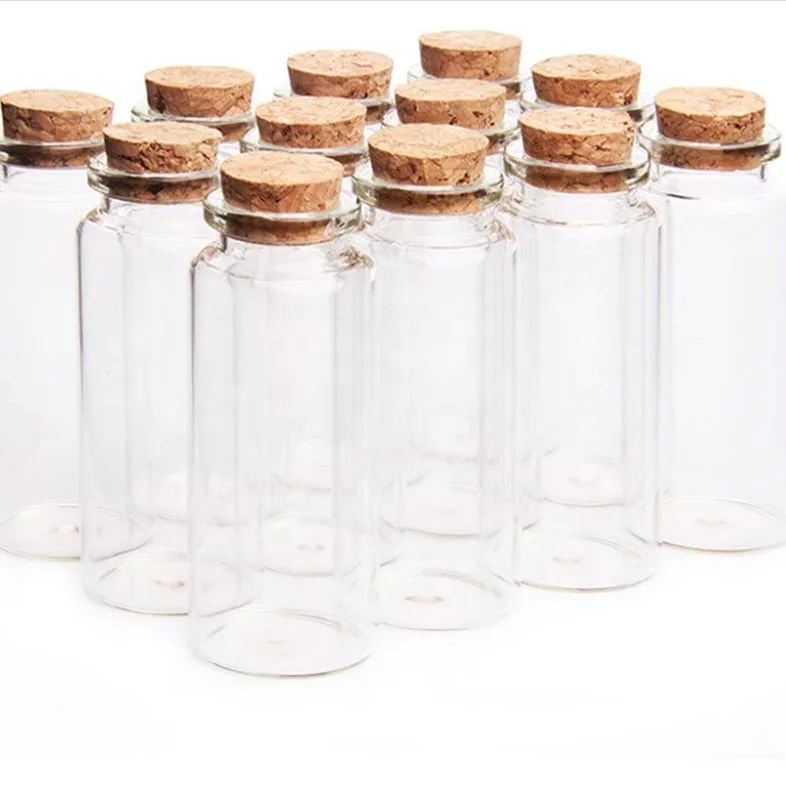Types of Glass Vials: Tubular vs Molded
Essential objects such as vaccines, medicines and diagnostic reagents are usually kept in glass vials which is being used across various industries like pharmaceuticals, biotechnology business etc., for accomplishing the purpose of storage. Vials for Pharma Fill Enabling DrugsThere are essentially two processes used to manufacture these type of vials; tubular and molded glass. Choosing between them depends on the vial desination, what will be inside of it and overall cost factors.
A Comparison of Glass Vial Quality
The discussion of whether molded glass vials are superior to tubular glass vials comes up on a regular basis. Compact glass vials are also made, utilizing a single-piece molded design that eliminates any seams or welds for greater reliability and consistency compared to dropper bottles. Tubular glass vials, on the other hand are produced by pulling stringer into tubes, which offer being cut and stretched to size. Some of the time, this process can result in irregular wall thicknesses on the glass.
Note that advances in manufacturing technology have significantly reduced the quality differential between Type I and Type II vials Today, it is done by state-of-the-art machinery that manufactures tubular glass vials PRECISELY with uniform wall thickness and an internally polished surface. In addition to this, several vendors have launched tubular vials with tapered necks that reinforce them against robust behaviors.
Differences between Tubular Glass and Molded Vials
Tubular and Molded Glass Vials have Their Own Share of Differences In Terms Material & Features Tubular glass vials usually have a cylindrical form; molded glass vials offer numerous shape and size options, as these items can take on various designs during the blowing process. Although, tubular vials usually have a more restricted opening and with molded vial you can change your neck finishes to either screw or crimp finish in order to help for certain cap styles on the stopper stops.
All the vials are good for chemical resistance including acid, based and organic solvents under various temperature condition. In contrast, because tubular glass vials have thinner walls and a narrower aperture they are more fragile which is why molded glass with thicker walls and wider openings may be used when the product will experience substantial handling.
Cost-effective analysis in Glass vials
While the vial size and volume (capacity)size, along with both neck finish complexity level as glass grade type are all factors affecting price point for tubular and molded glass alike. Tubular glass vials are generally more cost effective to produce as compared with molded glass due to lesser processing and material costs. Tubular vials are also more handleable and easier to transport due to their round shape-thus, less likely susceptible to breakage during handling than any other forms.
On the other hand, molded glass vials may provide cost advantages in terms of quality. Because molded vials are made from a single piece of glass they last much longer and do not need to be replaced as often, which means less replacement costs resulting in overall lower cost of ownership.
Transitioning From Tubular To Molded Glass Vials
Choosing the Right Glass Vial For Your Application Depending on your application, budget and product availability are important factors when choosing glass vials. Tubular vials are used above all where price and functionalities to be achieved as simply a preferable choice. They are Rigid and sturdy used in Pharma industry, for vaccines, drugs and Injectable solutions storage also packaging of diagnostic reagents,Laboratory samples.
In the other hand, glass moulded vials can be any shape/neck finish imaginable offering unprecedented quality and flexibility. It is popularly used to house high-value drugs, beauty items and in-demand aromas with a striking aesthetic. Moulded glass vials are also used for packaging blood and tissue samples, chemicals reagents as well as organic acids.
Summary - Tubular glass vials vs molded glass vial Which is better So, at the end of this blog post we have analysed pros and cons for tubular & Molded Glass Vial : Like most choices between similar products or devices the best choice depends on what you value The above was applicable to both options Crucially... This creates a trade-off in that while molded glass vials can offer increased quality and decorative options, they tend to be on the more expensive side. While tubular glass vials are more specialized in use than molded containers, they offer a high level of cost-free (although less versatile) durability for applications such as parenteral drugs. Familiarizing oneself with each one of them can help manufacturers identify the most fitting choice for their products and make informed decisions.

